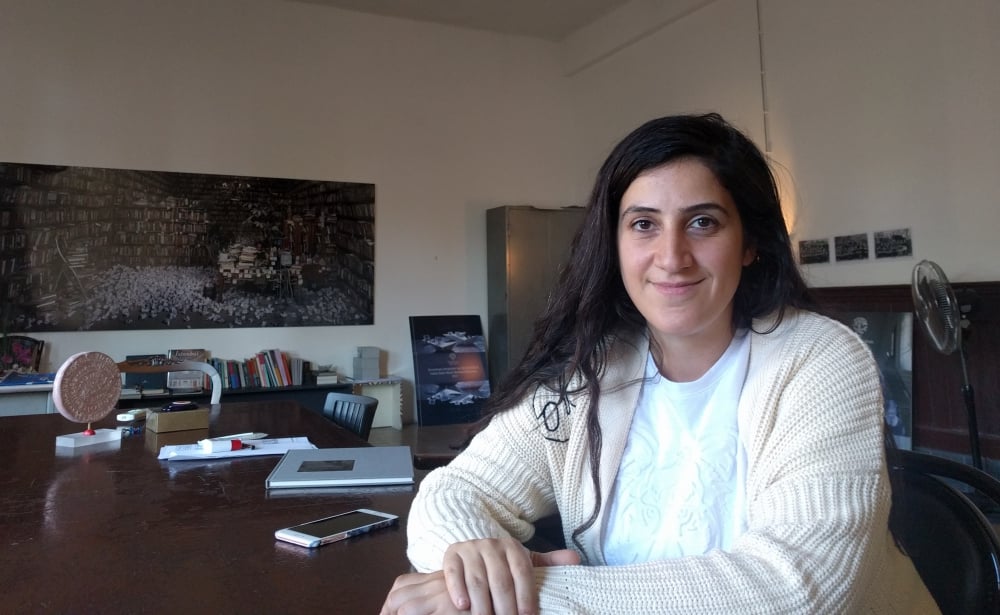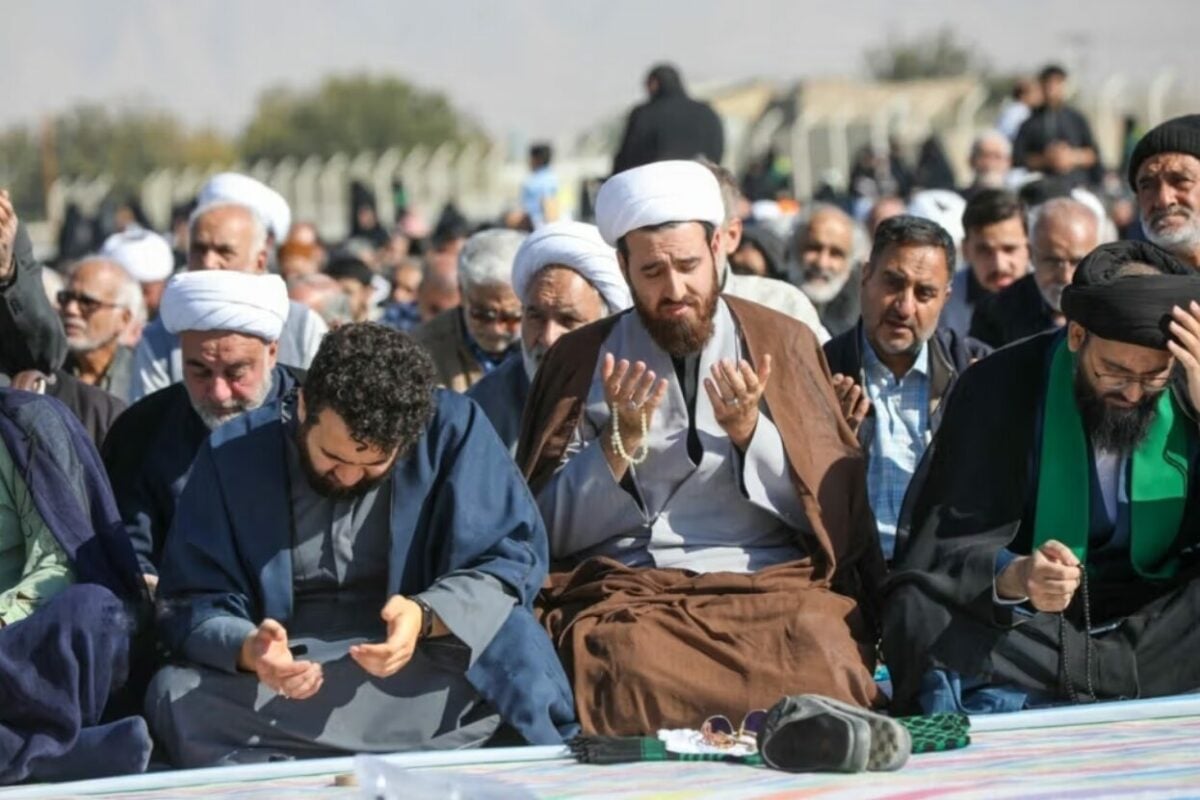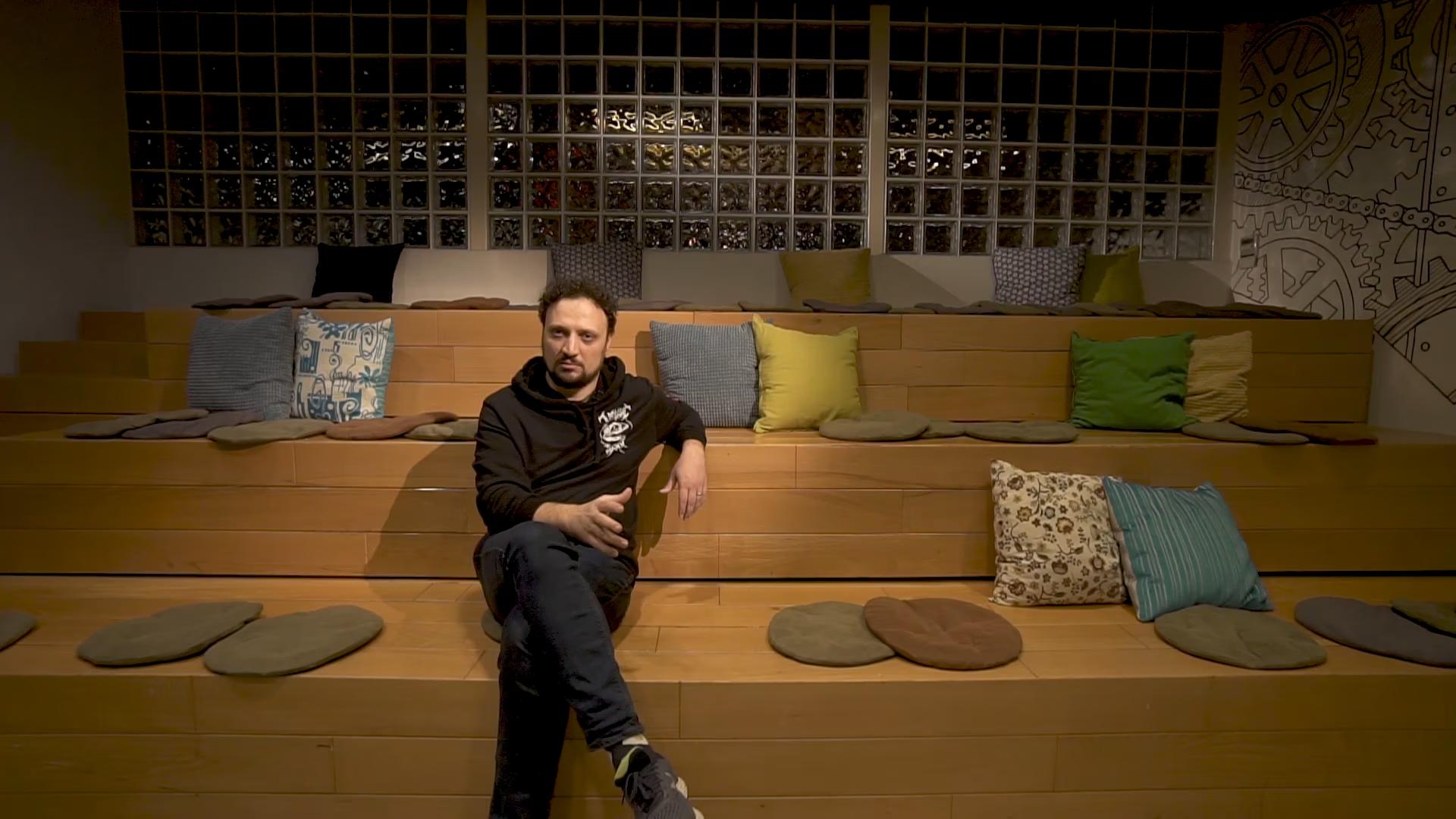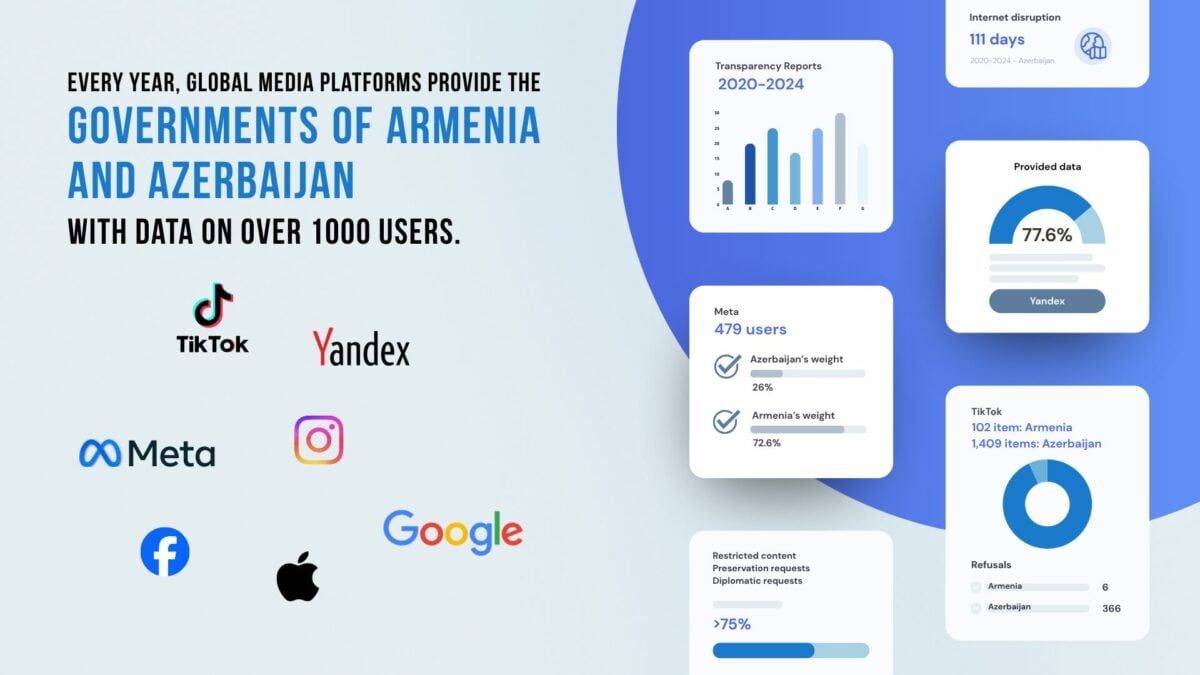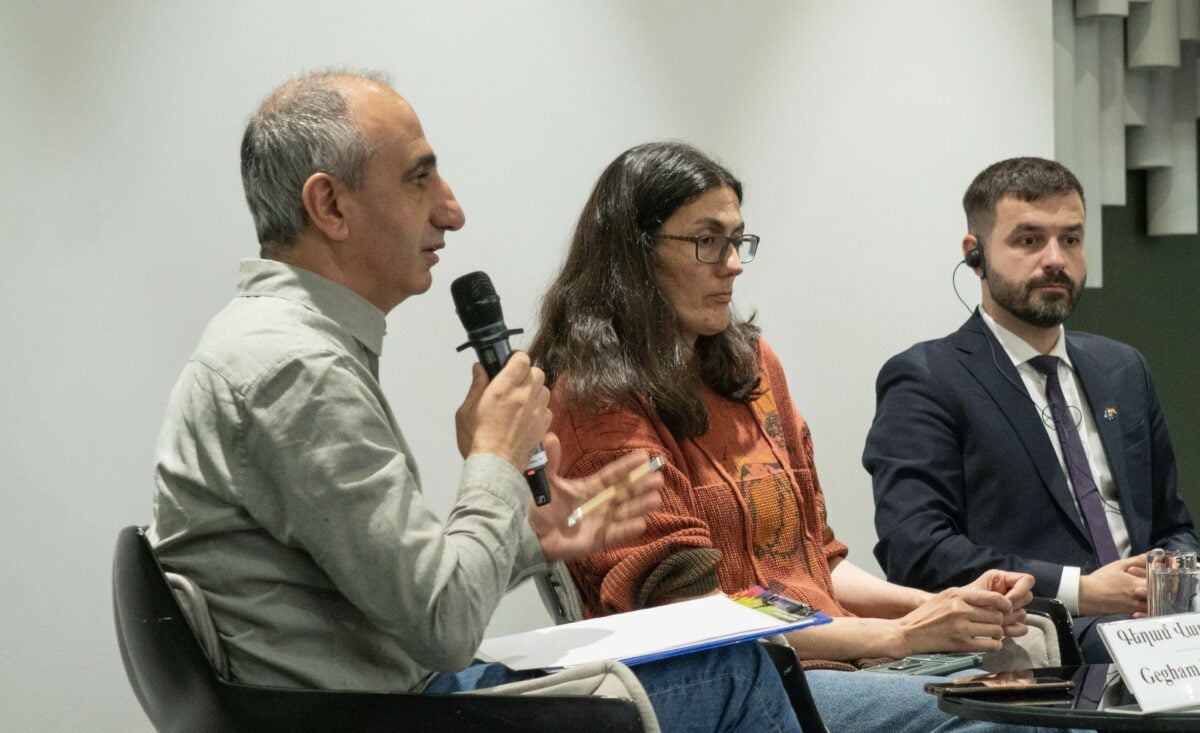For a few years now Galata Greek Primary School in Istanbul has been turned into an art center, which is trying to become a unique place at the crossroads of memories and the future.
Galata Greek Primary School was built in 1905, but later stopped functioning as a primary school, losing its students. (As a result of the exile of Greeks that began in 1964 in Turkey, thousands of Greeks were exiled or left Turkey over two days.) From a community of 200 thousand, only two thousand remained.
And until recently, this beautiful, neoclassical building was empty and of uncertain status. “But in 2012, the Greek community took the building back from the government. Until then, the building was empty: inside were school accessories, documents, archives, but there were no students. Naturally, the government wanted to lay its hand on this closed building, as it did with many Armenian and Greek buildings,” recounts Hera Büyüktaşçıyan, the head of programs at Galata Greek Primary School.
Through the Istanbul Foundation for Culture and Arts (IKSV), the school building was slightly renovated, lit, and for the first time Istanbul’s design biennial was organized. The building then became one of the main platforms of a larger event — the Istanbul Biennial.
The Galata Greek Primary School building, which kept both its name and the structure of its halls (its classrooms), began to have its own projects. Büyüktaşçıyan calls this format of the school “memory space.”
Büyüktaşçıyan is herself a very interesting and bright artist. She participates in various international exhibits and curates contemporary art projects. She received the Golden Lion prize as a participant of the Armenian national pavilion “Armenity” at the 2015 Venice Biennale.
Her Greek and Armenian roots unwittingly turn her into one who both evaluates the contextual effect of art and thinks of national dignity.
The history of this school is like one big art project. Are you planning any archival exhibits?
Being an artist, I always think about heritage and the study of archives. Unfortunately, much from the school has been stolen or destroyed. Very little information is left about a 100-year-old life, only 660 student files. In fact, there were many more students.
We announced a heritage restoration program, and along with studying the archives, we organized different projects at the school. We reopened the library and began to have readings in the evenings and exhibits. Many writers, artists, and curators come.
We’re a not-for-profit organization, so we don’t have a lot of money, but once a year we invite an artist to implement a project at the school. The initiatives are often constructed on memory and the rights of ethnic minorities.
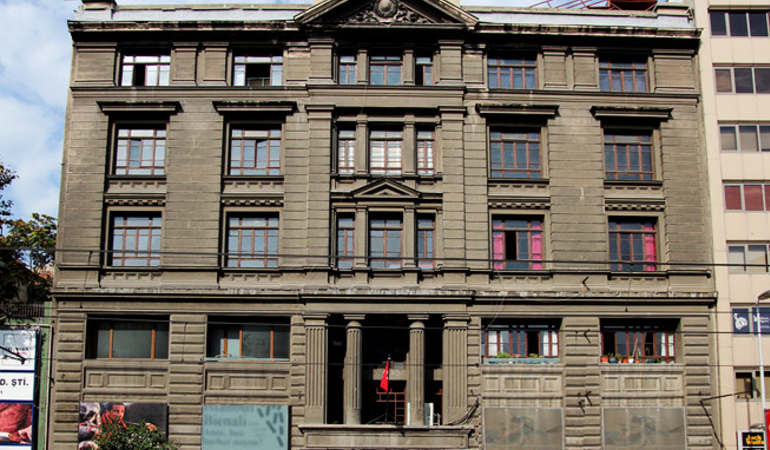
Nostalgia is being monetized in a very interesting way in the world. This school, too, besides being a platform for contemporary art, reminds us that the past is current.
That’s right. Of course, in the case of major events, like the Biennial, that’s not seen, but we’ve turned one of our floors into a school museum. On one hand, we’re working on preserving the Greek identity; on the other hand, we invite many Armenian artists. This school is something like a place of memories.
Many students, especially Turkish students, come to our exhibits. When I was studying at this school, it wasn’t accepted to emphasize identity, many were afraid even to talk about this. But now in places like this and together with art, what is spoken becomes more sensitive and visible.
Students of Turkish schools don’t know a lot about Armenian and Greek history. For example, about the Greek and Armenian pogroms on September 6–7, 1955. And one of the ways of learning history are the meetings that happen here.
In politics, much is based on a sense of guilt (when they say, you did this), and that frontal language seems to be the only one usually spoken. As a result, the person before you begins not to discuss, but to defend himself.
But learning is easier through art, since there’s the identification effect, which helps break down the otherness complex and enter the other’s skin.
Probably the lack is informational. Before making a conclusion, we need to be informed.
Yes, and we’re trying to add to the information also the emotional part. Our school building was built for children and, apart from historical value, it also has a gravitation; for example, many students come here to study, to work, to interact with each other.
Interaction is very important, especially when I see that many people are forced to leave the country: artists, scientists. They feel under pressure.
Has censorship increased?
Censorship became tougher after the coup attempt. Many feel that if they talk freely they can be arrested or face difficulties. Many of my friends have simply left the country.
And being a cultural center, we try to construct a new language, since there’s censorship and the building is under government control: this is the first property that’s been returned to an ethnic minority.
The government sends police officers to the building to monitor the exhibits, to find out if anything is being said against the government.
It’s dangerous to directly point to anything or anyone. For this reason we try to find new ways of expressing. Yes, we talk about history, but we try also to build a new language.
We too are learning, but what to do? If we live here, we want to find new ways and heal the wounds of the past.
To understand the present, we must learn from the past.
I truly believe that the spaces that have become places of memory can cure history. Galata Greek Primary School’s building has a traumatic history and has gone through a lot of pain, but now what’s being done, it’s like it gives the building a new breath.
In Istanbul, a lot of old buildings are being demolished and die. The government has also begun to shut down cultural centers, and it’s very valuable that our school building continues to be active as a cultural center.
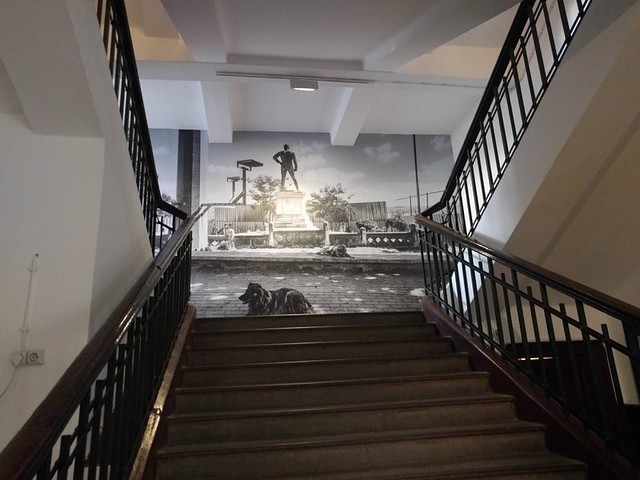
It’s always like that: control begins from the media and art. They’re probably the most dangerous areas.
Of course. But when you view art as a collection of different languages, you can say a lot. The opposite party often cannot understand all the nuances, since they’re not that interested in art. The only thing that interests an overseer is direct propaganda: is there something against the government or not.
In Turkey, do you feel the support of the Armenian press?
The most active is Agos, which always takes an interest in art and the community’s issues. But both the Greek and the Armenian communities are very closed; it’s not easy to get them to go outside of their home. Of course, they come to the exhibits or other cultural events, but I’m sure that there are more potential visitors. I don’t know what the reason is: fear, indifference, or something else.
But in any case, Agos is noticeable in the media sector, while older newspapers, Zhamanak (Time), Marmara, practically don’t write about art. Same with the two Greek-language newspapers. Of course the Greek community is smaller than the Armenian community, but the online publications are not many.
The most in demand are social networking sites, Facebook and Instagram, which serve for contacts and information. Especially Instagram.
People now have become lazy and don’t like to read. For this reason, they want to get notified through an image. The publication of artists’ works on Instagram is more influential than posts on other social media platforms.
In fact, Turkish media is more interested in us. Of course not many print newspapers remain now, but maintained are art magazines and publications that cover almost all the major cultural events, including also ethnic minorities’ events.
I can even say that Turkish newspapers write more about Armenian and Greek art than the Armenian- and Greek-language newspapers.
And how does censorship work in the media sector?
Many alternative information sources appeared after the Gezi Park protests, but then they all slowly shut down.
When someone wrote something contrary about Erdogan on Wikipedia, they decided to shut down the entire encyclopedia. It’s now the second year Wikipedia is blocked in Turkey.
In these five years, ten times they blocked and then reopened Twitter. I myself was forced to close my account, since after the Gezi incidents, I wrote very brave things on Twitter. At the time, I was in Venice, I was participating in the Armenian pavilion’s exhibit, and I was getting very mixed information from Turkey. Various nationalist (also Azeri) nutcases were commenting on my tweets. As an artist, I didn’t want to get mixed up in those comments and I closed my account.
Generally, trolls find different ways to constantly attack.
It’s as though they’re waiting for you to write something on social media so that they can attack immediately. But that’s not only on the internet; trolls wander the city, in public places, on public transportation, and incite people.
It’s interesting that the number of women in headscarves has increased in Istanbul.
If you’ve noticed, in Istanbul now European tourists have decreased; instead people from Saudi Arabia and Iran have increased. Many have money and for that reason are desirable for the government. They buy houses in Istanbul, while in public places, they are already writing in Arabic next to the Turkish. In Taksim Square, all the signs now are also in Arabic.
Slowly, Turkey is changing. My grandma says that during her youth if you suddenly spoke Armenian or Greek in the street, they would come hit you on your back, saying, you live here, speak Turkish.
But now on the street there are as many Arabic speakers as Turkish speakers.
And many women wear headscarves not for religious reasons but for money. They are given money to cover themselves. They are given free public transportation passes so that they sit on busses wearing headscarves and influence other women. To do so-called “mobbing,” to discredit bareheaded women.
Religion is being manipulated (you won’t see such aggression in other Muslim countries), and freethinking people are particularly targeted. It’s also for this reason that many people want to leave here. The future is unknown.
But during visible and invisible transformations, it’s always interesting to explore the new meanings and find a new language to speak about them.
Interview by Nune Hakhverdyan

